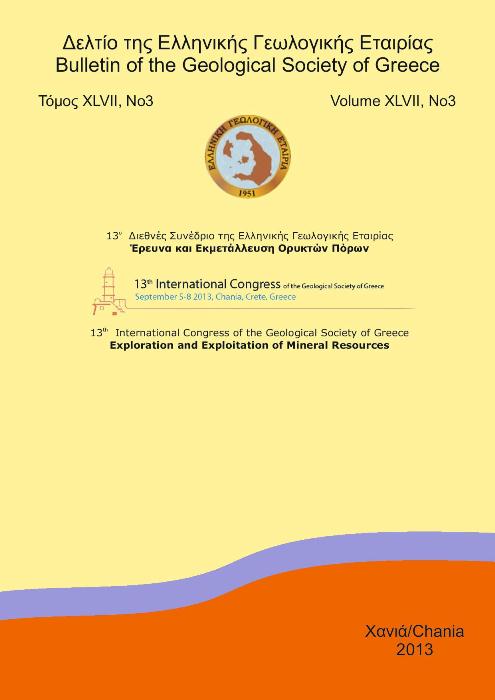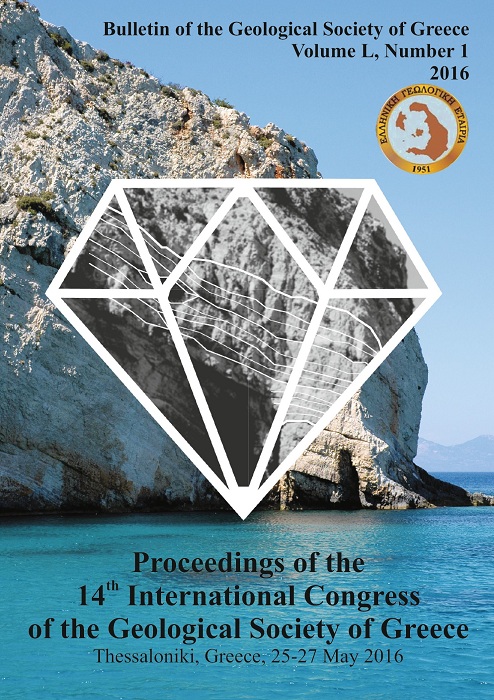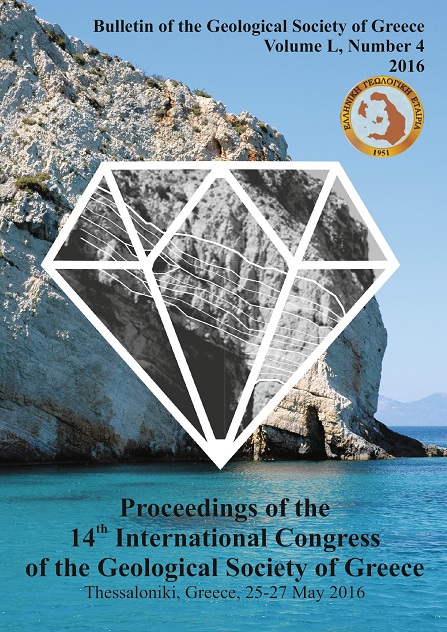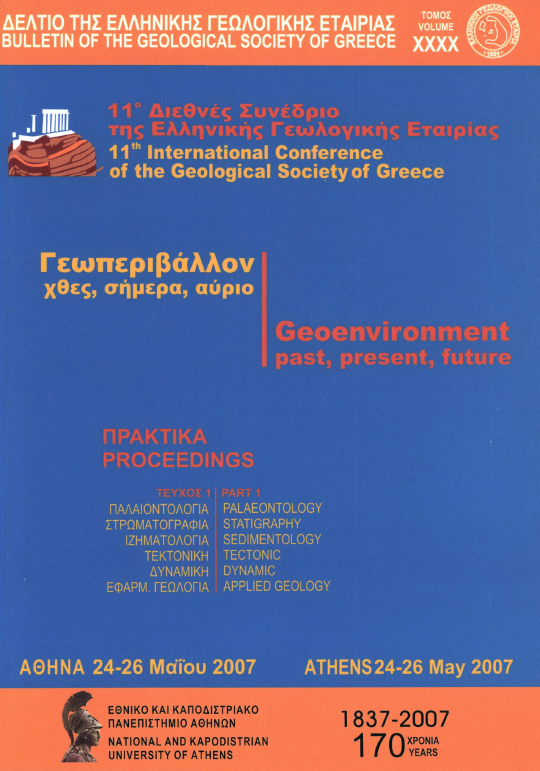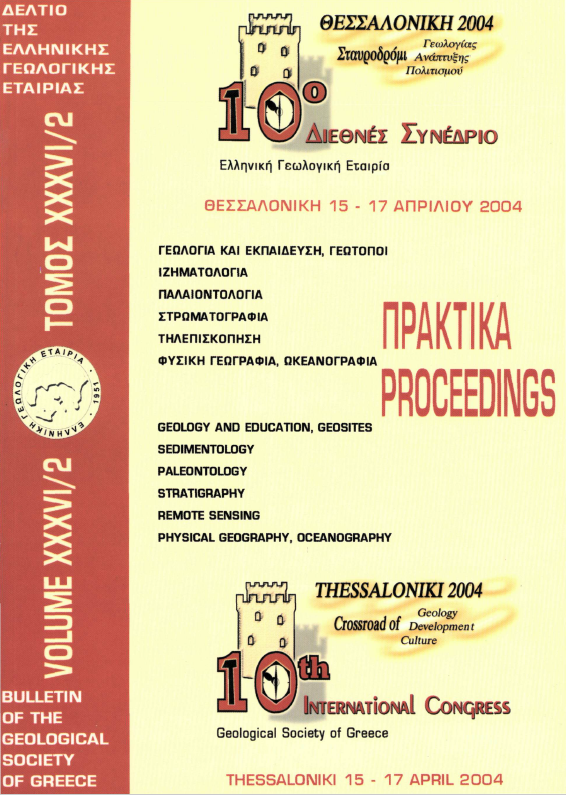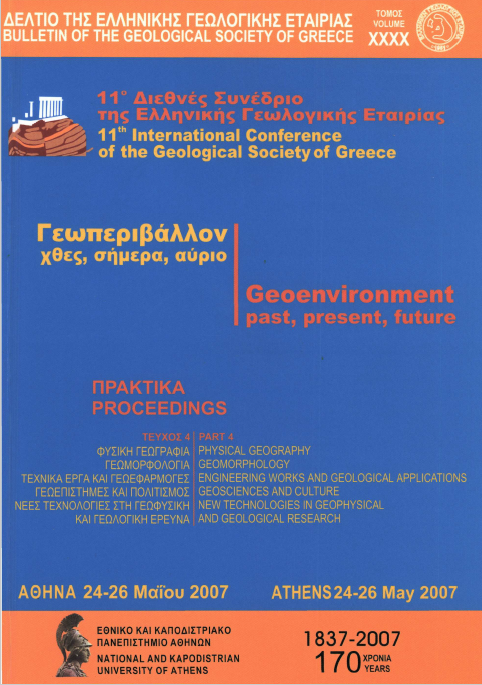Assessment of heavy metals contamination in the coastal sediments of the broader area of Chios harbor (Aegean Sea)
Résumé
The present study evaluates the pollution level of the surficial sediments of the coastal area around the city of Chios (east Aegean Sea), with particular emphasis on the Port of Chios, fishing shelters, the waste water treatment plant and the electric power plant. For this reason, the metals/trace metals (Pb, Fe, Zn, Cu, Cr, Mn, Al, Ni) along with total organic carbon (TOC) and CaCO3 were analyzed in 23 sediment samples. The results showed that the highest concentrations are observed in the main Port, offshore the power plant station and in a small fishing shelter, without being considered as dangerous for the marine organisms and human health, according to metal pollution indices and Sediment Quality Guidelines.
Article Details
- Comment citer
-
Tsoutsia, A., Kapsimalis, V., Poulos, S., Paraskevopoyloy, V., & Dassenakis, E. (2013). Assessment of heavy metals contamination in the coastal sediments of the broader area of Chios harbor (Aegean Sea). Bulletin of the Geological Society of Greece, 47(3), 1581–1589. https://doi.org/10.12681/bgsg.11001
- Rubrique
- Marine Geology

Ce travail est disponible sous licence Creative Commons Attribution - Pas d’Utilisation Commerciale 4.0 International.
Authors who publish with this journal agree to the following terms:
Authors retain copyright and grant the journal right of first publication with the work simultaneously licensed under a Creative Commons Attribution Non-Commercial License that allows others to share the work with an acknowledgement of the work's authorship and initial publication in this journal.
Authors are able to enter into separate, additional contractual arrangements for the non-exclusive distribution of the journal's published version of the work (e.g. post it to an institutional repository or publish it in a book), with an acknowledgement of its initial publication in this journal. Authors are permitted and encouraged to post their work online (preferably in institutional repositories or on their website) prior to and during the submission process, as it can lead to productive exchanges, as well as earlier and greater citation of published work.

